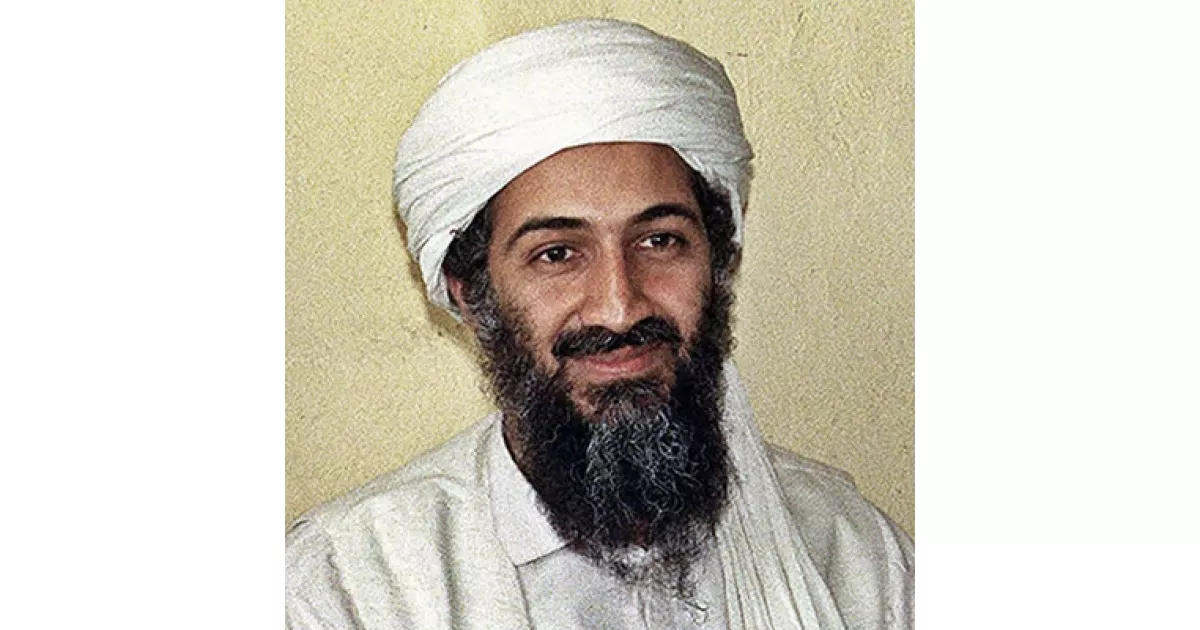A closer look at the most debated and controversial moments involving Osama bin Laden.
Osama bin Laden was the founder and leader of al-Qaeda, a militant organization. He fought against the Soviet Union in Afghanistan and supported Bosnian mujahideen. Bin Laden opposed U.S. foreign policy in the Middle East, declaring war on the United States in 1996. He orchestrated and supervised the September 11 attacks in 2001, which targeted U.S. assets and resulted in significant casualties, solidifying his role as a key figure in global terrorism.
1982: Bin Laden on America allowing Israelis to invade Lebanon
In 1982, America allowed the Israelis to invade Lebanon, helped by the US Sixth Fleet.
May 1988: Massacre of Shias in Gilgit
In May 1988, large numbers of Shias from in and around Gilgit, Pakistan were killed in a massacre that is alleged to have involved Osama bin Laden leading an armed group of Sunni tribals to suppress a revolt.
November 1990: FBI Raid on El Sayyid Nosair's Home
On November 8, 1990, the FBI raided the New Jersey home of El Sayyid Nosair, an associate of al-Qaeda operative Ali Mohamed, and discovered evidence of terrorist plots, including plans to blow up New York City skyscrapers.
1991: Bin Laden's Criticism and House Arrest
In 1991, Bin Laden publicly criticized Saudi dependence on U.S. forces, leading to his house arrest and eventual forced departure from the country. The U.S. 82nd Airborne Division was deployed in Dhahran.
December 1992: Bombing of the Gold Mohur Hotel in Aden
On December 29, 1992, the Gold Mohur Hotel in Aden was bombed, resulting in two deaths. This is believed to be the first bombing attack involving Bin Laden.
1993: Bin Laden Sent Aid to Algerian Islamists
In 1992 or 1993, Bin Laden sent an emissary, Qari el-Said, with $40,000 to Algeria to aid the Islamists. Their advice was heeded, resulting in a war that caused the deaths of 150,000 to 200,000 Algerians.
1993: Bin Laden allegedly granted Bosnian citizenship
In 1993, Bin Laden and his assistant Mehrez Aodouni were allegedly granted citizenship and Bosnian passports by the government in Sarajevo. The Bosnian government later denied this information.
1993: Nosair Connected to World Trade Center Bombing
In 1993, El Sayyid Nosair was convicted in connection with the 1993 World Trade Center bombing and later admitted guilt for the murder of Rabbi Meir Kahane in New York City on November 5, 1990.
March 1994: Killing of German intelligence agent and wife in Libya
On March 10, 1994, Silvan Becker, a German intelligence agent, and his wife Vera were killed in Libya.
1994: Loss of Saudi Citizenship and Stipend
In 1994, King Fahd of Saudi Arabia stripped Bin Laden of his Saudi citizenship and persuaded his family to cut off his $7 million a year stipend due to Bin Laden's continued criticism of the Saudi monarchy.
1995: EIJ Attempt to Assassinate Hosni Mubarak and Al-Qaeda's Justification for Killing Innocents
In 1995, the EIJ attempted to assassinate Egyptian President Hosni Mubarak, which failed, leading al-Qaeda to develop its justification for the killing of innocent people via a fatwa issued by Mamdouh Mahmud Salim.
1995: Sudan's Offer to Expel Bin Laden
In late 1995, the State Department and the CIA learned that Sudanese officials were discussing with the Saudi government the possibility of expelling Bin Laden. US Ambassador Timothy Carney encouraged the Sudanese to pursue this course, but Saudis did not want Bin Laden because they had already revoked his citizenship.
February 1996: Sudan's Secret Discussions to Expel Bin Laden
In February 1996, Sudanese officials began secret meetings with Saudi officials, offering to expel Bin Laden to Saudi Arabia if they would pardon him. The US became aware of these discussions, but Saudi officials did not want Bin Laden in their country.
August 1996: Bin Laden's Declaration of War
In August 1996, Bin Laden issued a fatawā titled "Declaration of War against the Americans Occupying the Land of the Two Holy Places", published by Al-Quds Al-Arabi, criticizing U.S. forces in Saudi Arabia.
August 1996: Declared Holy War Against the U.S.
In August 1996, Osama bin Laden declared a fatwā. He declared holy war against the U.S.
1996: Bin Laden Declares War on the United States
In 1996, Osama bin Laden declared war on the United States. He advocated for attacks targeting U.S. assets in various countries due to his opposition to American foreign policy in the Middle East.
June 1997: Confessions of ties with Bosnian Muslim forces and Bin Laden
In The New York Times' June 26, 1997 report on the bombing of the Al Khobar building in Riyadh, Saudi Arabia, it was noted that those arrested confessed to serving with Bosnian Muslim forces and admitted to ties with Bin Laden.
November 1997: Bin Laden Funder of Luxor Massacre
In November 1997, Osama Bin Laden was claimed to have funded the Luxor massacre which killed 62 civilians. Also in mid 1997, the Northern Alliance threatened to overrun Jalalabad, causing him to abandon his Najim Jihad compound and move his operations to Tarnak Farms in the south.
February 1998: Declared Holy War Against the U.S.
In February 1998, Osama bin Laden declared a fatwā. He declared holy war against the U.S.
February 1998: Bin Laden issues fatwa against U.S.
In February 1998, Osama bin Laden, along with Ayman al-Zawahiri and others, issued a fatwa entitled "Declaration of the World Islamic Front for Jihad against the Jews and the Crusaders". This called upon Muslims to attack the U.S. and its allies, citing grievances such as the presence of American forces in the Arabian Peninsula, sanctions against Iraq, and Israeli repression of Palestinians.
May 1998: Bin Laden Claims Israeli State Seeks to Annex Arabian Peninsula
In May 1998, Osama bin Laden claimed in an interview with ABC News that the Israeli state's ultimate goal was to annex the Arabian Peninsula and the Middle East, accusing the U.S. of stirring up anti-Islamic sentiment.
August 1998: U.S. embassy bombings in East Africa
On August 7, 1998, simultaneous truck bomb explosions occurred at the U.S. embassies in Dar es Salaam, Tanzania, and Nairobi, Kenya, killing hundreds. These 1998 U.S. embassy bombings brought Osama bin Laden and Ayman al-Zawahiri to the attention of the U.S. public. Al-Qaeda later claimed responsibility.
December 1998: Bin Laden Claims Jews Control U.S. and UK Governments
In December 1998, Osama bin Laden claimed in an interview with Pakistani journalist Rahimullah Yusufzai that Operation Desert Fox proved that Israeli Jews controlled the governments of the U.S. and the United Kingdom.
1998: Arrest of EIJ members in Albania
In 1998, four members of EIJ were arrested in Albania and extradited to Egypt, related to Bin Laden's network.
October 1999: Al-Qaeda Designated as a Terrorist Organization
In October 1999, the United Nations designated al-Qaeda as a terrorist organization.
December 1999: Bin Laden financed convoys of recruits through businesses in Sudan
According to Middle East intelligence reports, in December 1999 Bin Laden financed small convoys of recruits from the Arab world through his businesses in Sudan. Among them was Karim Said Atmani, identified as the document forger for a group accused of plotting bombings in the United States.
December 1999: Arrests of individuals linked to terrorism plots
In late December 1999, Khalil al-Deek was arrested in Jordan on suspicion of involvement in a plot to blow up tourist sites. Also, a search revealed former mujahideen linked to suspected terrorist groups had lived near Sarajevo.
1999: Milošević claims al-Qaeda presence in the Balkans
In 1999, during his trial at the International Criminal Tribunal, Slobodan Milošević quoted a purported FBI report stating that al-Qaeda had a presence in the Balkans and aided the Kosovo Liberation Army. He also claimed that Bin Laden used Albania as a launchpad for violence.
1999: Press reports on Bin Laden's Bosnian citizenship
In 1999, the press reported that Bin Laden and his Tunisian assistant Mehrez Aodouni were granted citizenship and Bosnian passports in 1993 by the government in Sarajevo. The Bosnian government denied this information following the September 11 attacks.
January 2000: Islamic militants plan triple attack
In late 2000, it was revealed that Islamic militants led by Bin Laden had planned a triple attack for January 3, 2000, including bombings in Jordan and an attack on a target within the United States. The plan was foiled by arrests and the sinking of an explosive-filled skiff.
September 11, 2001: Bin Laden interview with Hamid Mir
Two months after the September 11, 2001 attacks, Bin Laden stated during an interview with Pakistani journalist Hamid Mir.
September 2001: Denial of Involvement in 9/11 Attacks
In September 2001, Osama bin Laden initially denied involvement in the 9/11 attacks, releasing a statement broadcast by Al Jazeera on September 16, 2001, denying responsibility for the attacks.
September 2001: September 11 attacks
On September 11, 2001, al-Qaeda launched the September 11 attacks, using commercial airplanes as missiles against targets in the U.S., including the World Trade Center and the Pentagon, resulting in the deaths of at least 2,750 people. Communications intercepted on the day of the attacks pointed to Bin Laden's responsibility.
October 2001: Bosnia and Herzegovina as a safe haven for terrorists
In October 2001, a former U.S. State Department official described Bosnia and Herzegovina as a safe haven for terrorists, asserting that militant elements of the former Sarajevo government were protecting extremists, some with ties to Bin Laden.
November 2001: Videotape discussing 9/11 attack recovered
In November 2001, U.S. forces recovered a videotape in Jalalabad showing Osama bin Laden discussing the 9/11 attacks with Khaled al-Harbi, suggesting prior knowledge of the event.
December 2001: Broadcast of Videotape
On December 13, 2001, a videotape recovered in November showed Bin Laden discussing the attacks, it was broadcast on various news networks, though the translation's accuracy was later disputed.
2001: Supervised the Execution of the September 11 Attacks
In 2001, Osama bin Laden supervised the execution of the September 11 attacks inside the U.S..
2002: Bin Laden Claims Jews Control Media and Politics
In 2002, Osama bin Laden claimed that Jews controlled civilian media outlets, politics, and economic institutions of the United States in a released letter.
2002: Letter to the American People Published
In 2002, Osama bin Laden's Letter to the American People was published, describing the formation of the Israeli state as a crime and demanding the U.S. withdraw personnel from Muslim lands.
2002: Bin Laden's Criticism of U.S. Governance
In late 2002, Bin Laden criticized the U.S. for its secular form of governance. He called upon Americans to convert to Islam and reject immoral acts.
2004: Bin Laden claims responsibility for 9/11
In 2004, Osama bin Laden abandoned his denials regarding the 9/11 attacks and claimed personal direction of the nineteen hijackers in a video played on Al-Jazeera.
May 2006: Al-Jazeera Airs Tape of Bin Laden Claiming Responsibility
On May 23, 2006, Al-Jazeera aired a tape in which Osama bin Laden announced, "I am the one in charge of the nineteen brothers. ... I was responsible for entrusting the nineteen brothers ... with the raids."
September 2006: Al-Jazeera Broadcasts Videotape of 9/11 Preparations
On September 7, 2006, a videotape broadcast by Al-Jazeera showed Osama bin Laden with Ramzi bin al-Shibh and two of the 9/11 hijackers, Hamza al-Ghamdi and Wail al-Shehri, making preparations for the attacks.
2006: Alleged Imprisonment by ISI
According to Seymour M. Hersh, in 2006, Bin Laden had been a prisoner of the ISI at the Abbottabad compound.
August 2007: Al-Qaeda Releases Video Demonstrating Bin Laden's Survival
In August 2007, al-Qaeda released a video demonstrating Osama bin Laden's continued survival, where he claimed sole responsibility for the September 11 attacks and denied any prior knowledge of them by the Taliban or the Afghan people.
2010: Bin Laden Condemns Massacres of Muslim Civilians
In 2010, Osama bin Laden criticized followers who were reinterpreting Islamic doctrine to justify the massacres of Muslim civilians and instructed his followers around the world to focus on education and persuasion rather than entering into confrontations with Islamic political parties.
2014: Gall's Report on ISI Knowledge
In 2014, Carlotta Gall reported in The New York Times Magazine that ISI Director General Ahmad Shuja Pasha knew of Bin Laden's presence in Abbottabad.
2015: Hersh's Allegations
In a 2015 London Review of Books article, Seymour M. Hersh asserted that Bin Laden had been a prisoner of the ISI at the Abbottabad compound since 2006.
2019: Imran Khan's Claim
In 2019, Pakistani prime minister Imran Khan claimed that Pakistani intelligence led the CIA to Osama bin Laden.
June 2020: Imran Khan's Denouncement and Praise
During a June 2020 Pakistani parliament session, Prime Minister Imran Khan denounced Bin Laden's killing as "an embarrassing moment" and praised Bin Laden as a Shaheed (martyr).
Mentioned in this timeline
TikTok also known as Douyin in China is a social...

Bill Clinton the nd U S President - served as...

Barack Obama the th U S President - was the...

George W Bush the rd U S President - is...
Saudi Arabia officially the Kingdom of Saudi Arabia KSA is...
Sudan officially the Republic of the Sudan is a country...
Trending
21 minutes ago Cavs' Health Improves: Wade's Return Boosts Playoff Hopes; Mobley's Status Questionable
21 minutes ago Estonia Buys Bunkers: Fortifying Border Amidst Russia Tensions, Bolstering Baltic Defenses

21 minutes ago Zion Williamson to play against Bucks, securing $16.8 million guarantee.

22 minutes ago Rudy Gobert Suspended for Flagrant Foul in Game Against 76ers

22 minutes ago Tirante vs. Tabilo: Rio Open 2026 Prediction and Highlights of Garin Match

22 minutes ago Fritz and Paul Advance to Delray Beach Quarterfinals: Predictions and Schedule
Popular

Jesse Jackson is an American civil rights activist politician and...
Randall Adam Fine is an American politician a Republican who...

Barack Obama the th U S President - was the...

Ken Paxton is an American politician and lawyer serving as...

Bernie Sanders is a prominent American politician currently serving as...

Pam Bondi is an American attorney lobbyist and politician currently...
